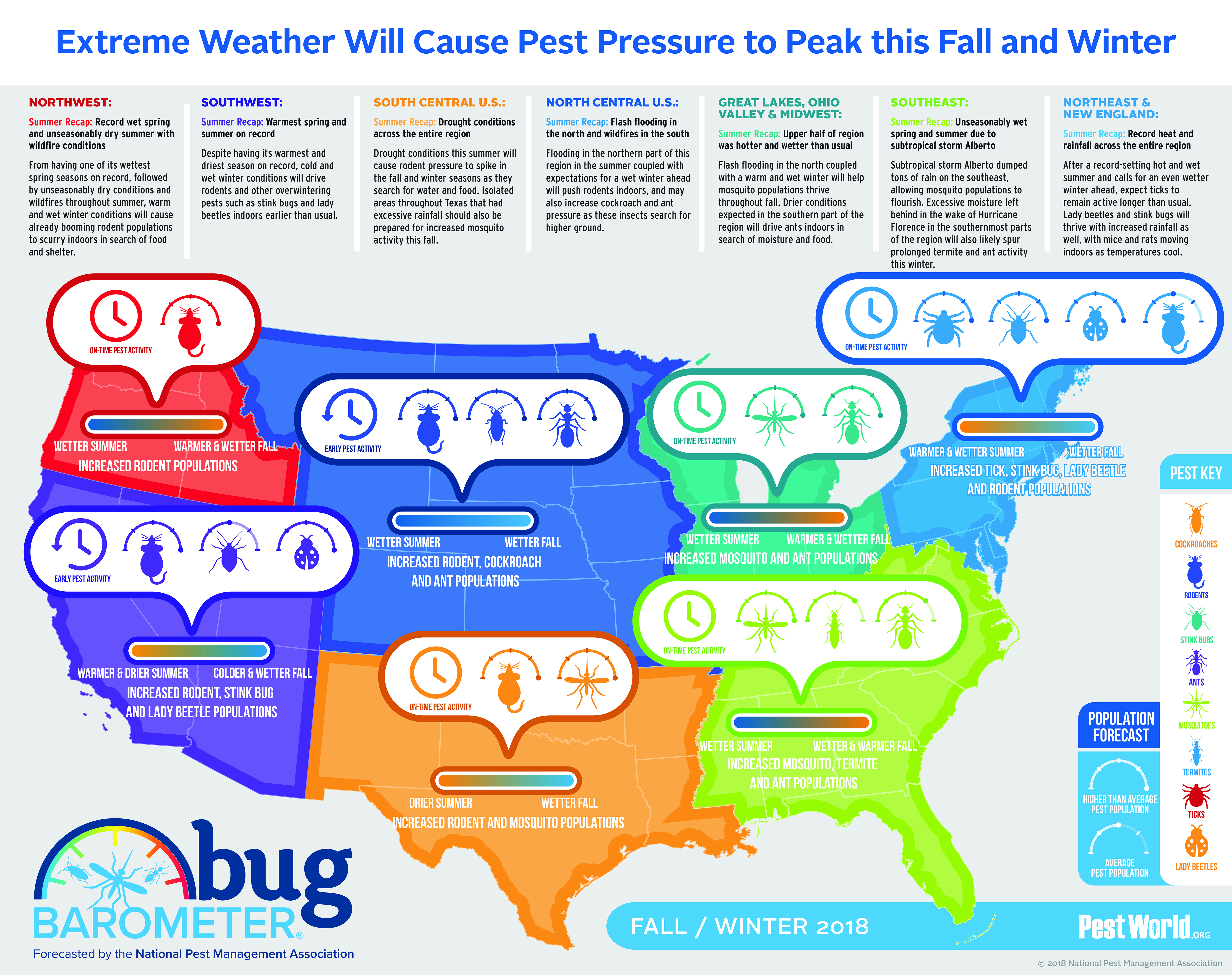They state 'avoidance is far better than cure,' and this saying applies when it concerns pest control. You may recognize the importance of keeping your home or company devoid of insects, however have you ever took into consideration the environmental impact of the techniques utilized to attain this?
In this conversation, we will check out the different parasite control techniques readily available and their possible impacts on the setting. From making use of chemical pesticides to natural insect control techniques and sustainable techniques like integrated parasite administration, there is much to discover the choices we make and their effect on the world around us.
So, bend up and get ready to reveal the reality behind pest control methods and their environmental repercussions.
Chemical Pesticides and Their Ecological Influence
Chemical pesticides have a considerable environmental influence, which can be much better recognized by analyzing their use and effects.
When you make use of chemical pesticides to regulate parasites, they can wind up harming not just the targeted pests however additionally valuable insects, birds, and other pets. These chemicals commonly remain in the setting, polluting dirt, water, and air. They can additionally accumulate in the food cycle, presenting a threat to human health.
Furthermore, chemical pesticides can interfere with communities by killing off all-natural killers of bugs, leading to an imbalance in the environment. Furthermore, some pesticides have actually been connected to the decline of pollinators like bees, which are vital for plant recreation.
It is very important to consider these ecological influences when considering parasite control techniques.
Natural Pest Control Techniques and Their Eco-Friendliness
Natural pest control methods supply an environment-friendly option to chemical pesticides. By utilizing all-natural active ingredients and techniques, you can properly manage insects while decreasing injury to the setting. best ant deterrent are 4 environmentally friendly parasite control methods to take into consideration:
1. Biological control: Present natural predators, such as ladybugs or nematodes, to manage pest populations naturally.
2. Physical barriers: Use nets, screens, or row covers to literally protect against insects from reaching your plants.
3. Buddy growing: Expand pest-repelling plants together with your crops to prevent bugs naturally. As an example, growing marigolds can ward off aphids and other bugs.
4. Homemade solutions: Create do it yourself pest control remedies utilizing active ingredients like vinegar, cooking soda, or necessary oils. These natural solutions can help ward off bugs without dangerous chemicals.
Integrated Insect Administration: A Sustainable Approach
To efficiently manage parasite populaces while lessening injury to the environment, consider adopting an incorporated parasite management approach, which focuses on sustainable methods.
Integrated Pest Administration (IPM) is an all natural technique that combines numerous bug control techniques to achieve long-term bug monitoring goals. It aims to reduce making use of chemical pesticides and instead stresses prevention, tracking, and the use of non-chemical controls.
By incorporating multiple techniques, such as organic control, social methods, and mechanical approaches, IPM gives an effective and sustainable option for parasite control.
This method not just reduces the adverse effect on the atmosphere yet likewise promotes the total wellness of environments.
Conclusion
So, currently you recognize the ins and outs of bug control methods and their influence on the atmosphere.
From the unsafe results of chemical pesticides to the eco-friendliness of natural bug control approaches, it's clear that we must prioritize sustainable approaches like incorporated insect monitoring.
https://dgpestcontrolquincyil.z13.web.core.windows.net/ like a fragile ecological community, discovering the appropriate balance is important for protecting our setting and maintaining insects at bay.
